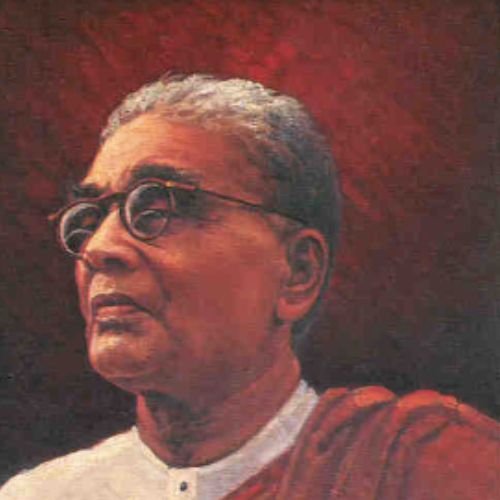Early Life:
Tanguturi Prakasam was born on 23 August 1872 in Guntur district of present day Andhra Pradesh. He completed his high school education in Ongole and later pursued the Fellow of Arts programme at Rajahmundry. In 1904 Prakasam went to study law in the United Kingdom and upon completing his legal education, he returned to India and practiced law at the Madras High Court.
Role in India’s Independence Movement:
During his time in the UK he interacted with Indian nationalist leaders like Dadabhai Naoroji, Romesh Chunder Dutt and Lala Lajpat Rai and was familiarised with their political views and the Indian nationalist movement.
The nascent interest he developed in the Indian independence movement was then fueled during his practice at the Madras High Court. Inspired by the speeches of Bipin Chandra Pal who was campaigning in Madras during the early 1900s, Prakasam decided to give up his law practice and devote his entire time to the freedom struggle.
After the execution of the Lucknow Pact (an agreement reached between Congress and Muslim League whereby Congress agreed to concede representation of religious minorities in the provincial legislatures in lieu of the Muslim league joining the Congress independence movement) in 1916, Prakasam regularly attended Congress meetings. He wanted the Indian independence movement and the concept of Satyagraha to be accessible to masses. He believed that the press was an important tool in achieving this accessiblity. He started a newspaper- ‘Swarajya’ in three languages- English, Tamila and Telugu. While his newspaper was not a success, it served as a platform for his involvement in ground level politics.
He took an active part in the protests against the Simon Commission and led the successful Salt March in the Madras Presidency. He was arrested for his participation in the Quit India Movement. His valour during the protests against the Simon Commission was rewarded with the title of Andhra Kesari (Lion of Andhra).
Prakasam was elected to the Madras provincial legislature in 1937 and served as the revenue minister. He won the elections again in 1946 and became the Chief Minister of Madras Presidency. During his tenure as a legislator, he promoted the cottage industry and proposed the closing of all textile factories in Madras. His government was short-lived and lasted only for 11 months due to internal differences with the Congress party leaders. After the fall of his government in Madras, he took a break from active politics.
Contribution to Constitution Making:
Prakasam was elected to the Assembly from Madras on a Congress Party ticket. He intervened in important issues such as organisation of village republics and discretionary powers of the Governor.
Later Contributions:
Post independence, Prakasam worked towards the creation of the state of Andhra Pradesh on linguistic lines. He formed the Hyderabad State Praja Party in 1952. Prakasam was appointed as the first Chief Minister of the newly formed state of Andhra Pradesh in 1953. However, the government collapsed after one year.
He continued to work on campaigning for Dalit issues.
He passed away on 20 May 1957.
- T Prakasam being an ardent follower of Gandhi, proposed that village republics should form the basis of the Constitution. He believed that village republics, if organised on the basis of self-sufficiency and if made self-governing, could control inflation and stop balck marketing. He emphatically held that village republics could establish peace in India.
- He expressed his disappointment in the Constituent Assembly failing to secure the division of Indian provinces on a linguistic basis.
- While discussing emergency provisions, Prakasam proposed that the Governor of the province should be given discretionary powers during an emergency instead of deferring decision making to the Union.
- T. Prakasam by P. Rajeswara Rao (National Book Trust India, 1972)
- Andhra Kesari T. Prakasam by T. Suryanarayana Rao (Ministry of Information and Broadcasting, Government of India, 1995)
- Andhra Kesari Tanguturi Prakasam (Lok Sabha Secretariat, 2000)
- Those were the days: Madras’ Prakasam to Andhra’s Kesari, the CM of two states owes it to city by Venkatesh Ramakrishnan (DT Next, 2020)
.

